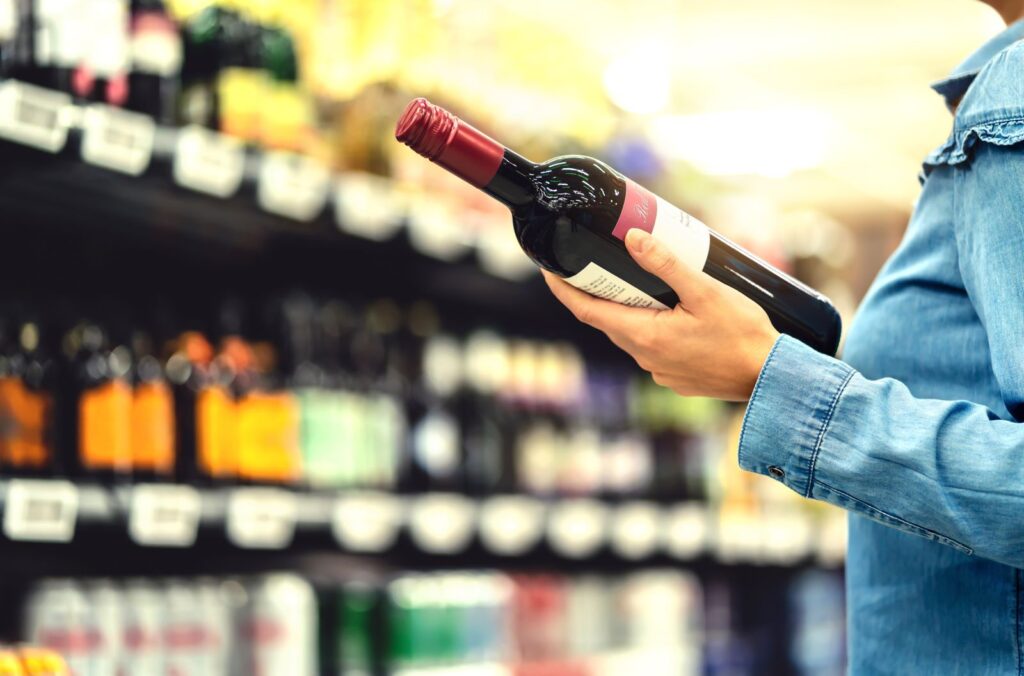Still wine and spirits hit hardest in latest alcohol duty increase
1st August 2023
The government’s biggest revamp of the alcohol duty system in 150 years will see drinks taxed by alcohol volume (abv) going forward, with some wines and spirits facing eye-watering increases while drinks under 3.5% abv are set to benefit from relief.

The changes introduced today (1st August) are part of a wider package of reforms announced in 2021 and aim to simplify the alcohol duty system to stimulate growth in the UK drinks sector while incentivising the production of lower-strength alcoholic drinks, the government has said.
Under the new system, alcohol duty rates will increase at 3.5%, 5.6%, 8.5% and 22% abv across all drink types, with the exception of certain products such as English sparkling wine, pre-mixed gin and tonic and Irish cream that will benefit from tax cuts.
In a bid to support British pubs, duties have been frozen on draught beer and cider, with these now costing consumers 11p less than their supermarket equivalents.
Commenting on the new measures, chancellor Jeremy Hunt said: “The changes we’re making to the way we tax alcohol catapults us into the 21st century, reflecting the popularity of low alcohol drinks and boosting growth in the sector by supporting small producers financially.”
According to the government, the new alcohol tax system has been made possible by the UK’s departure from the EU that has enabled the development of ‘common-sense’ reforms to support the wider UK tax and public health objectives.
Historic rates for spirits and wine
The Wine and Spirit Trade Association (WTSA) said the new duty rates represent the biggest tax hike on a standard bottle of wine for nearly five decades, with still wine and spirits facing tax increases of 20% and 10% respectively.
For consumers, this means spirits at 37.5% abv could become 76p more expensive on supermarket shelves, while a bottle of still wine at 12.5% abv could cost up to 44p more.
However, the biggest impact will be felt by producers of fortified wine, with port and sherry facing a 44% duty rise, adding around £1.50 to a bottle of port at 20% abv and 97p to sherry at 15%.
Taxing alcoholic products by strength could also result in the loss of some higher ABV wines from supermarket shelves, such as those imported from hotter countries. As well as reducing consumer choice, the WTSA said the duty hikes will bring price rises for 90% of wines sold in the UK.
Miles Beale, chief executive of the WTSA, commented: “Ultimately, the Government’s new duty regime discriminates against premium spirits and wine more than other products.
“Making wine isn’t an industrial process; reducing wine’s alcoholic content is limited, changes the product and is costly to carry out. Nor can the alcohol in full strength spirits be reduced for products such as gin, vodka and whisky where a minimum strength prescribed by law.
“In the end the Sunak-Hunt changes to wine duty will reduce consumer choice and push up prices. For spirits you can expect at least a £1 increase on a bottle of gin or vodka and a leap of £1 per bottle of wine when duty is increased by 20% (+VAT).”
While most products in the wine and spirit category are set to go up in price, some isolated categories will benefit from tax cuts. For example, Irish cream will drop by 3p, cans of 5% ABV ready-to-drink spirit mixers by 6p, Prosecco by 61p and 500ml 3.4% pale ale by 20p a bottle.
Small wins for beer and cider
Alongside excluding draught beer and cider from duty hikes, the government is introducing a small producer relief today for breweries selling less than 4,500hl of alcohol a year, replacing the previous Small Brewers Relief scheme.
This means that small businesses who produce alcoholic products with an ABV of less than 8.5% will be eligible for reduced rates of alcohol duty on qualifying products. The new scheme is intended to promote innovation in the drinks sector and support the drinking trend of lower alcohol beverages.
However, brewers will still pay 10.1% more tax on bottles and cans of beer, costing the industry an additional £225 million a year, according to the British Beer & Pub Association (BBPA).
While the introduction of the reformed duty system was welcomed by the organisation, ongoing cost increases and inflationary pressures are still putting significant strain on UK pubs and brewers, which may be unable to absorb further price hikes in the future.
Emma McClarkin, chief executive of the BBPA, said: “Our duty system was long-overdue reform, to better incentivise the production of lower-strength products and nudge consumers towards them.
“But brewers don’t just supply draught products, they package beer in bottles and cans for enjoyment in pubs and at home as well, so the 10.1% duty increase will have a huge impact, and overall will likely lead to costs going up across the whole category.
“We need the Government to guarantee there will be no further increases to duty in the coming months, because there is only so long our brewers and the pubs they supply, can continue to shield customers from these rising costs so that a pint at the local remains affordable for everyone.”
